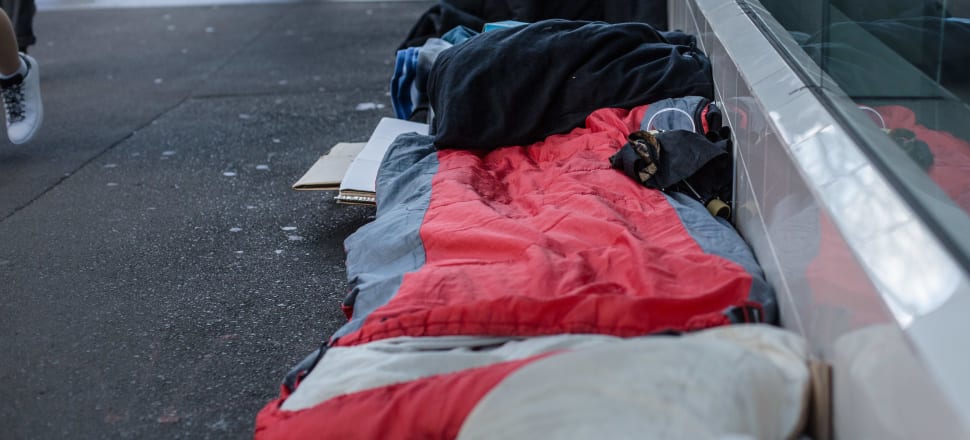
The fire at Loafers Lodge put the spotlight on where we house some of our most vulnerable people. The Detail looks at why men, in particular, fall into homelessness.
The list of fatalities from the Loafers Lodge fire paints a grim picture.
All men aged between 50 and 67, all vulnerable in some way, and all living in unsafe and insecure housing.
"What kind of country are we that we allow this kind of thing to happen to our most vulnerable members of our community?" Green Party co-leader James Shaw asked the House on the day of the fire.
Greg, a peer support worker with Lifewise, works with men experiencing homelessness. He tells The Detail they're often facing a web of other personal challenges.
Greg used to be homeless, too – he lived on and off the streets of Auckland for close to 10 years.
Back then, he didn't feel like he could ask for help. It wasn't until staff from the Auckland City Mission approached him that he was able to get a benefit and, eventually, permanent housing.
Thinking of the people he works with now, Greg says there are a lot of reasons men find themselves without a stable home.
"Some grew up in boys' homes; some hospitals, through mental health. Others have had such bad home lives, that they just came straight out on the streets when they were young and never left. Some have just been in and out of prison their whole lives because they didn't know any other way, and that's what they saw around them, so that's what they did.
"There's not one reason. There are all sorts of different reasons ... and trying to unpack that is the hard part," he says.
HomeGround, the Auckland City Mission's Hobson Street facility, aims to accommodate those in acute need of housing, while also tackling the drivers of homelessness through wraparound support.
As well as 80 residential apartments, HomeGround has a medical centre, a community kitchen, social work services, a pharmacy, and detox services, all under one roof.
Auckland City Missioner Helen Robinson tells The Detail the tragedy at Loafers Lodge is symptomatic of a broader problem.
"It's important to acknowledge the failure of New Zealand for 40 years to actually create enough good housing that's appropriate, that's affordable, for us all," she says.
Robinson identifies poverty, trauma, violence, and relationship breakdown as some of the main drivers of homelessness.
"It would not be an unusual story that we would see men come in who were previously partners, fathers. Something has happened significantly to that relationship, they have become disconnected and dislocated from their whānau, perhaps are quite unwell in one way shape or form, lose an income, and then it's very, very easy to see how you be suffering the reality of homelessness," she says.
Around 70 percent of the people coming through the doors at HomeGround are men, Robinson says.
Despite there being a large number of community groups across the country designed to provide care and services for vulnerable people, Robinson says the funding and coordination of services isn't there.
"I think what something like Loafers Lodge is showing is that that support is not rocket science, we just have to acknowledge that people need it.
"New Zealand is learning how possible it is to support people, but actually that it's difficult, and it's time consuming, and it does require resource to do it."
Find out more about how the Auckland City Mission is trying to support vulnerable men in need by listening to the full podcast episode.
Check out how to listen to and follow The Detail here.
You can also stay up-to-date by liking us on Facebook or following us on Twitter.








